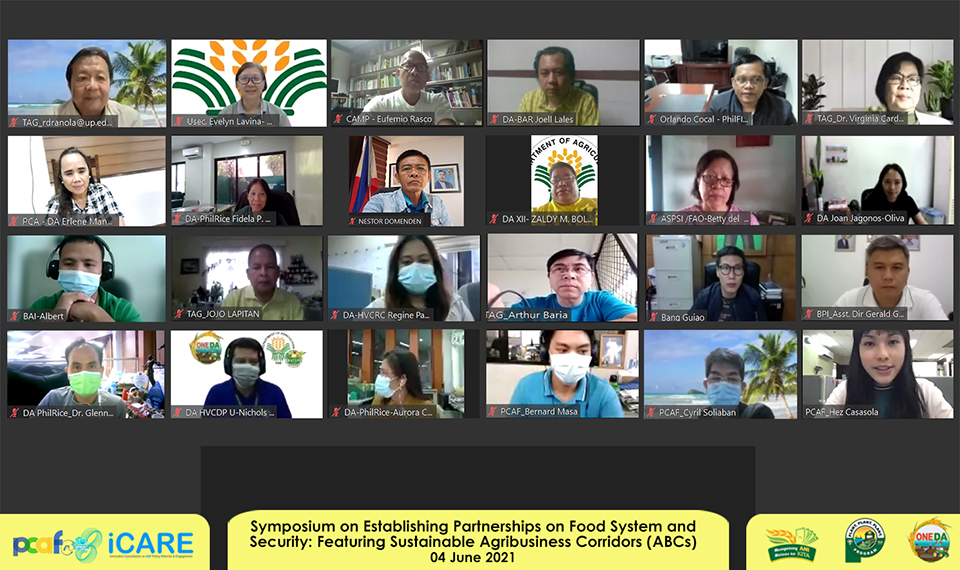
The Philippine Council for Agriculture and Fisheries (PCAF) hosted a Symposium on Establishing Partnerships on Food System and Security: Featuring Sustainable Agri-industrial Business Corridors (ABCs) on June 4, 2021, as part of the identified activities to address one of the 10 thematic areas—Managing Sustainably Existing Food Production Systems—that would be tackled during the United Nations Food Systems Summit 2021 in September.
ABCs is part of the 18 key strategies of the Department of Agriculture (DA) that aims to integrate smallholder farmers and fisherfolk by providing them access to resources, including state-of-the-art production technology, hatcheries and nurseries, capital, and value-adding facilities.
Dr. Roberto Rañola, Jr., Chairperson, and Dr. Rogelio Concepcion, Co-Chairperson, of the DA-Technical Advisory Group (TAG) served as resource persons to discuss the Developing of Agri-Industrial Growth Corridors and Geo-spatial Integration of Food Systems and Food Security, respectively.
The symposium was attended by representatives from Coalition for Agriculture Modernization in the Philippines, Inc., TAG, DA offices, regional offices, bureaus, attached agencies and corporations, and National Banner Programs directors.
During the open forum, it was suggested to utilize existing ABCs and establish cold storage facilities near production areas, which would be awarded to accredited Farmer Cooperatives and Associations (FCAs). According to the stakeholders, this would be helpful, especially in “new normal” situations to avoid food spoilage during transportation and storage.
Another recommendation was to organize a project management office under DA that would handle matters related to the establishment and management of ABCs. More importantly, the LGUs, through Province-led Agriculture and Fisheries Extension Systems (PAFES), should be actively involved to ensure sustainability of ABCs. The issuance of an executive order was being proposed to institutionalize PAFES.
The possible reaction of multinational companies in establishing and strengthening ABCs was also brought up during the discussion. It was then clarified that ABCs will not compete with said companies, emphasizing on the fact that its only goal is to make food systems and processes more efficient to provide producers with more market access and increased income.
Meanwhile, part of the long-term strategy agreed were to take advantage of modern technologies and methods in postharvest and processing as well integrate digitization of agricultural information (i.e. utilization of artificial intelligence and database development).
All key points discussed would be deliberated at the second symposium to convene with the private sector.- JCL











